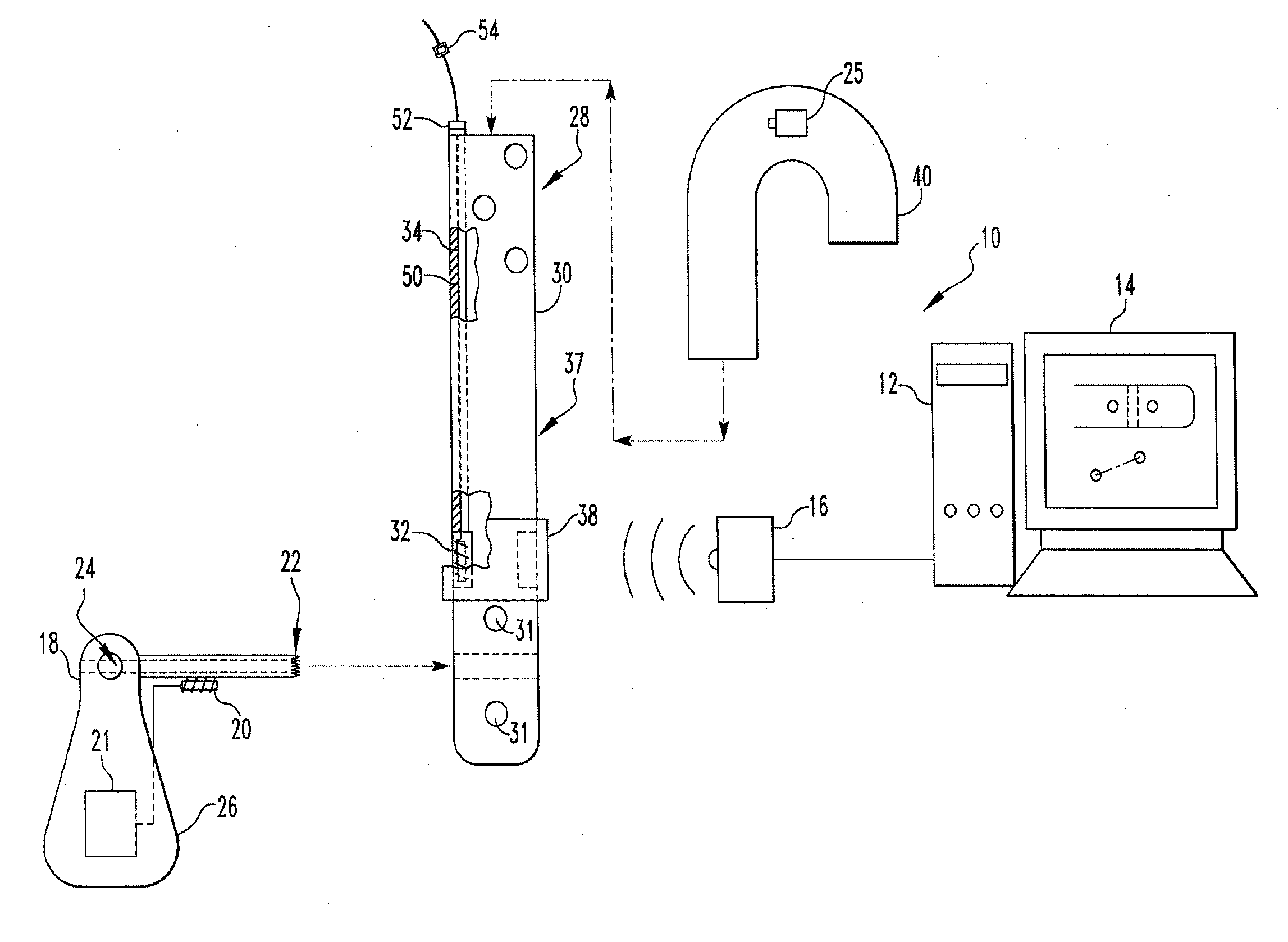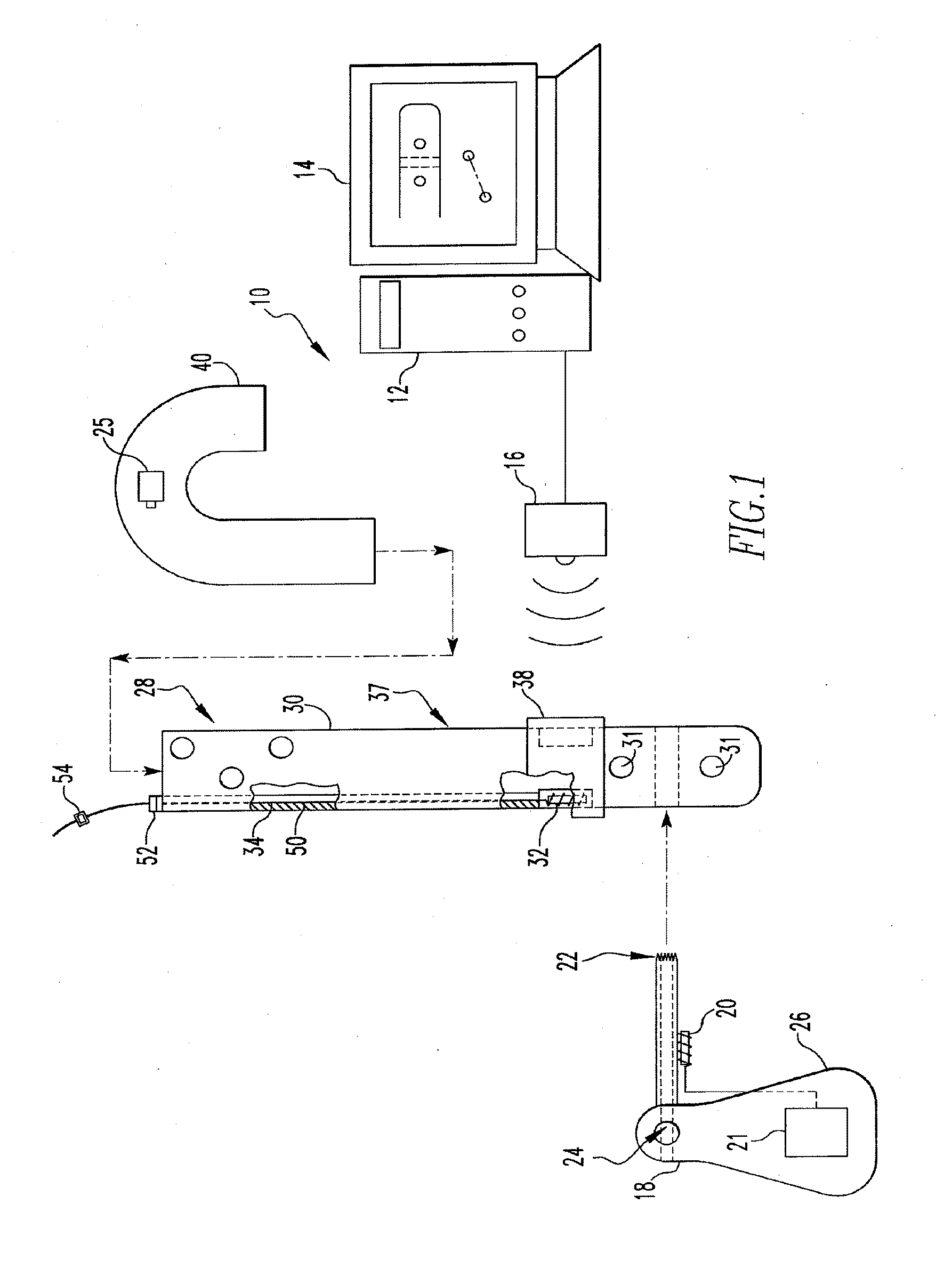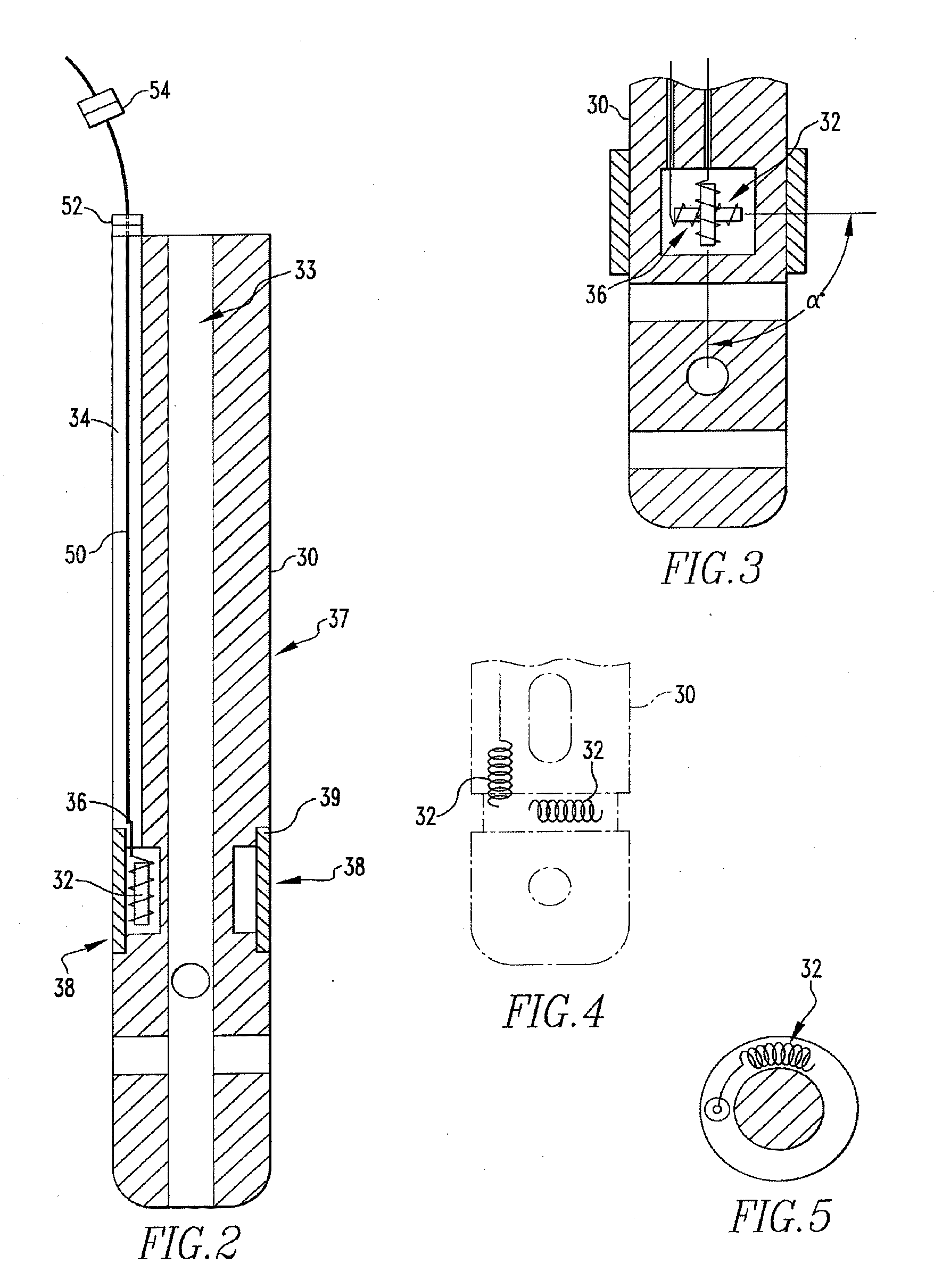Targeting an orthopaedic implant landmark
a landmark and orthopaedic technology, applied in the field of orthopaedic landmark identification, can solve the problems of incorrect bone entry point, most time-consuming and difficult steps, inaccurate jig for distal screws, etc., and achieve the effect of reducing radiation exposure of users and patients
- Summary
- Abstract
- Description
- Claims
- Application Information
AI Technical Summary
Benefits of technology
Problems solved by technology
Method used
Image
Examples
Embodiment Construction
[0084]Referring to the accompanying drawings in which like reference numbers indicate like elements, FIG. 1 illustrates one disclosed system 10 for identifying a landmark. The system 10 may include a processor 12, a magnetic field generator 16, a landmark identifier 18, and an orthopaedic implant assembly 28. The system 10 may also include a monitor 14 electrically connected to the processor 12 and an insertion handle 40 removably attached to the orthopaedic implant assembly 28. The processor 12 is depicted as a desktop computer in FIG. 1 but other types of computing devices may be used. As examples, the processor 12 may be a desktop computer, a laptop computer, a personal data assistant (PDA), a mobile handheld device, or a dedicated device. The magnetic field generator 16 is a device available from Ascension Technology Corporation of 107 Catamount Drive, Milton Vt., U.S.A.; Northern Digital Inc. of 103 Randall Drive, Waterloo, Ontario, Canada; or Polhemus of 40 Hercules Drive, Col...
PUM
 Login to View More
Login to View More Abstract
Description
Claims
Application Information
 Login to View More
Login to View More - R&D
- Intellectual Property
- Life Sciences
- Materials
- Tech Scout
- Unparalleled Data Quality
- Higher Quality Content
- 60% Fewer Hallucinations
Browse by: Latest US Patents, China's latest patents, Technical Efficacy Thesaurus, Application Domain, Technology Topic, Popular Technical Reports.
© 2025 PatSnap. All rights reserved.Legal|Privacy policy|Modern Slavery Act Transparency Statement|Sitemap|About US| Contact US: help@patsnap.com



